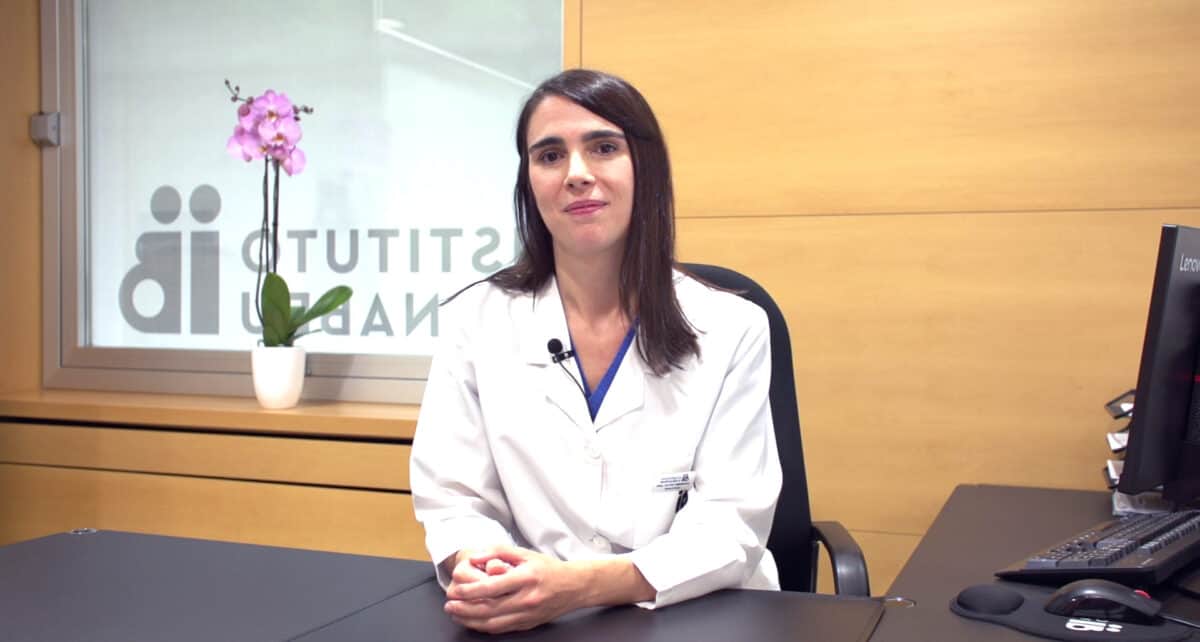New Transgender Law in Spain: the most significant changes in fertility
31-03-2023

Alicia Herencia, gynaecologist at Instituto Bernabeu, addresses the novoelties and explains that lesbian couples don’t need to be married to have children using the ROPA technique.
This March 31st marks International Transgender Awareness Day, which also aims to raise awareness of discrimination against transgender people around the world. Spain, which has one of the most advanced laws on reproductive medicine, has just taken a new step forward and this February passed the Trans Law, which aims to achieve real and effective equality for transgender people and guarantee rights for the LGTBQ community. This means ensuring that a transgender person can become pregnant, if he or she wishes to do so, through reproductive treatment without endangering his or her fertility. And one of the law’s novelties is that now it is no longer necessary to be married to undergo ROPA treatment, in which one of the women receives her partner’s egg and will carry their child. Dr Alicia Herencia, gynaecologist and fertility specialist at Instituto Bernabeu Madrid, explains the importance of reproductive care for transgender people and how it is important to inform about preservation techniques.
The Trans Law has been recently passed, what are the changes implied for trans people to help them have children using reproductive medicine?
In February this year, Spain passed Law 4/2023, already known as the Trans Law, which allows transgender people with gestational capacity to have access to assisted reproduction techniques under equal conditions, without discrimination based on sexual identity. The new law seeks to ensure that the health policies developed in Spain take into account the specific needs of LGTBQ people and, at the same time, that health professionals are trained in these people specific needs.
Does transsexuality lead to sterility?
In many cases it does result in infertility. It will depend on the type of treatment carried out in the transition process, but in general, infertility is caused by surgical procedures and gender-affirming hormone treatments. Individuals undergoing such treatments should be informed of this possibility so that they have the opportunity to make decisions about it, such as the use of gamete preservation techniques.
What is the process a trans person must follow to undergo an assisted reproduction technique?
It will depend on each case and the person’s wishes regarding a family project. Nowadays, there are many options and it is important to assess each case individually so that the person can decide and so that treatment can be carried out with the maximum safety guarantees.
What are your medical recommendations for a trans person who wishes to have children in the future? Does he/she have to have previously preserved his/her gametes?
It is important to inform the person about the fertility consequences of gender reassertion treatments and offer counselling on their gametes preservation possibility. Some decisions are irreversible, such as surgical treatments involving the removal of ovaries or testicles. In these cases, prior egg or sperm preservation is essential in order to be able to have biological children. When the transition is carried out with hormone therapy only but without surgery, the possibilities are diverse and, as research in this field advances, new options are emerging.
What are the most suitable therapies to preserve oocytes and sperm?
The most appropriate therapies are oocyte cryopreservation and freezing of seminal samples in adults. Other therapies have been proposed for puberty, in the same way they are proposed for children with oncological diseases. These therapies would be the preservation of ovarian tissue and testicular tissue, but, at the moment, both are considered experimental by scientific community.
What does transgender male preservation look like, and when would it be the right time to do it?
In the adult transgender man, preservation can be achieved by ovarian stimulation and subsequent egg retrieval and vitrification. There is evidence that it is medically feasible to retrieve eggs despite having already started hormone treatment with testosterone, which would allow the person to take time to make decisions about their reproductive life without having to prolong the dysphoria that can be caused by not starting hormone therapy for gender reassignment. In these cases, given the limited scientific evidence, it is probably advisable to stop testosterone treatment several weeks before starting ovarian stimulation treatment.
And transgender women, when would be the right time to do it?
Regarding preservation in transgender women, freezing of seminal sample from ejaculate, or freezing of sperm from testicle obtained by a technique called FNA (fine needle aspiration puncture) can be performed. Hormone therapy in trans women has a negative effect on testicular function and although the effects seem reversible, very little is known about the safe dose and time of use, so it is probably reasonable with the data we have today to perform preservation before starting hormone therapy.
